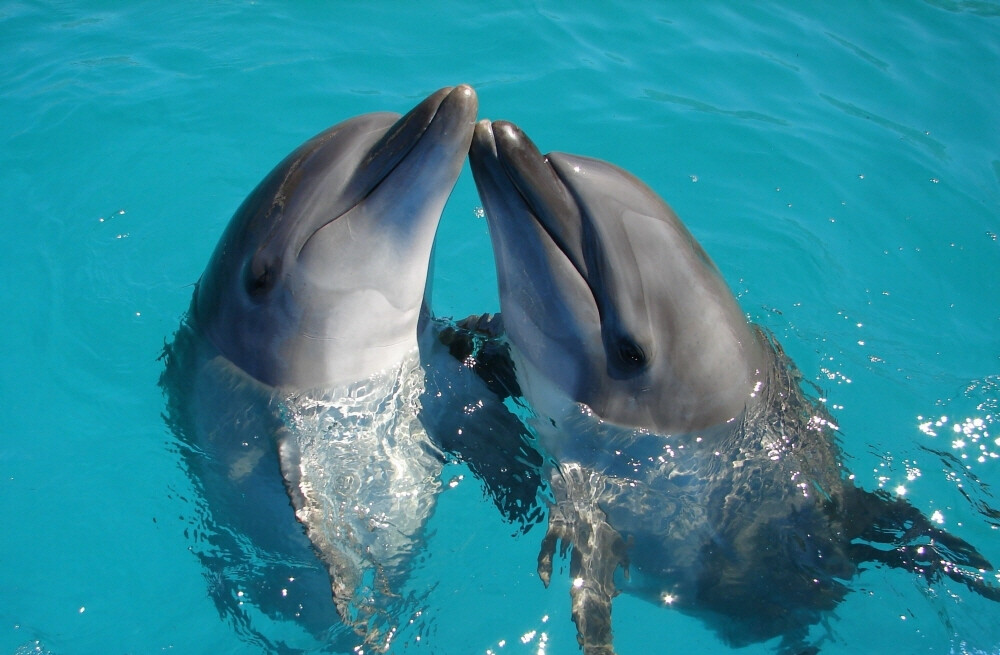
FLORIDA, USA – In a disturbing potential warning sign for both marine and human health, a recent study has unveiled evidence of Alzheimer’s disease-like neuropathology in stranded common bottlenose dolphins (Tursiops truncatus) along Florida’s Indian River Lagoon. The findings, published in the journal Nature Communications Biology, suggest a strong correlation between these neurological changes and chronic exposure to neurotoxins produced by harmful algal blooms (HABs), a phenomenon increasingly exacerbated by climate change and nutrient pollution.
Scientists at the University of Miami Miller School of Medicine, alongside researchers from Hubbs-SeaWorld Research Institute and other institutions, examined the brains of 20 bottlenose dolphins that stranded in the lagoon between 2010 and 2019. The investigation revealed significant brain alterations strikingly similar to those observed in human Alzheimer's patients, including the build-up of $beta$-amyloid plaques and hyperphosphorylated tau proteins, the classic hallmarks of the neurodegenerative disorder. The presence of TDP-43 protein inclusions, often associated with more aggressive forms of Alzheimer's and other neurodegenerative conditions, was also noted.
Dolphins are recognized as a "sentinel species" for the health of coastal ecosystems due to their long lifespans and position as apex predators, which makes them highly susceptible to accumulating environmental toxins. The study posits that these marine mammals, which naturally develop age-related amyloid and tau pathology, are experiencing an acceleration of neurodegenerative processes due to environmental stressors.
A key discovery was the disproportionately high concentration of a neurotoxin called 2,4-diaminobutírico (2,4-DAB) in the brains of dolphins stranded during periods of intense cyanobacterial (blue-green algae) blooms. The analysis showed that these dolphins had up to 2,900 times higher levels of 2,4-DAB in their cerebral tissue compared to dolphins stranded outside of bloom seasons. This neurotoxin, a non-protein amino acid produced by certain cyanobacteria and algae, is suspected of causing the severe brain damage observed. Dolphins ingest these toxins by consuming contaminated fish and mollusks, leading to bioaccumulation up the food chain.
“The co-occurrence of Alzheimer's disease neuropathological changes and the natural accumulation of algal toxins observed in dolphins allows a unique opportunity to study the impact of these two converging events on the brain,” stated Dr. David Davis, a neurotoxicologist from the University of Miami and a lead researcher on the study.
Further analysis of the dolphin brain tissue revealed "transcriptomic parallels" with human Alzheimer's disease, particularly in genes affecting neuronal communication and the integrity of the blood-brain barrier—a critical structure that shields the brain from harmful substances in the blood. Specifically, the exposed dolphins showed 536 differentially expressed genes, indicating impairment in GABAergic synapses, basement membrane alteration, and increased Alzheimer's risk factors that worsened with subsequent bloom seasons.
The findings raise serious public health concerns, given that humans share these coastal waters and are exposed to similar environmental risks. Harmful algal blooms, commonly known as 'red tides' or 'brown tides,' are intensifying in frequency and severity globally, driven by rising sea temperatures and increased nutrient runoff from agricultural and urban sources. These blooms have already led to large-scale fish kills and beach closures in Florida and elsewhere.
Researchers suggest that the disorientation and cognitive decline associated with the Alzheimer's-like condition could be a factor in the stranding of the affected dolphins, much like humans with dementia may wander from familiar settings.
"Seeing Alzheimer's-like changes in dolphins raises questions about whether similar problems exist in other species both in the U.S. and around the world," commented Wendy Noke Durden, a research scientist from the Hubbs-SeaWorld Research Institute.
The study serves as a stark warning, illustrating how global environmental changes, specifically climate warming and pollution, are accelerating the spread of neurotoxins into marine ecosystems, potentially threatening the neurological health of both wildlife and human populations living near affected waterways. Continued monitoring and mitigation of the factors driving harmful algal blooms are essential to protect the health of coastal wildlife and public health.
[Copyright (c) Global Economic Times. All Rights Reserved.]




























